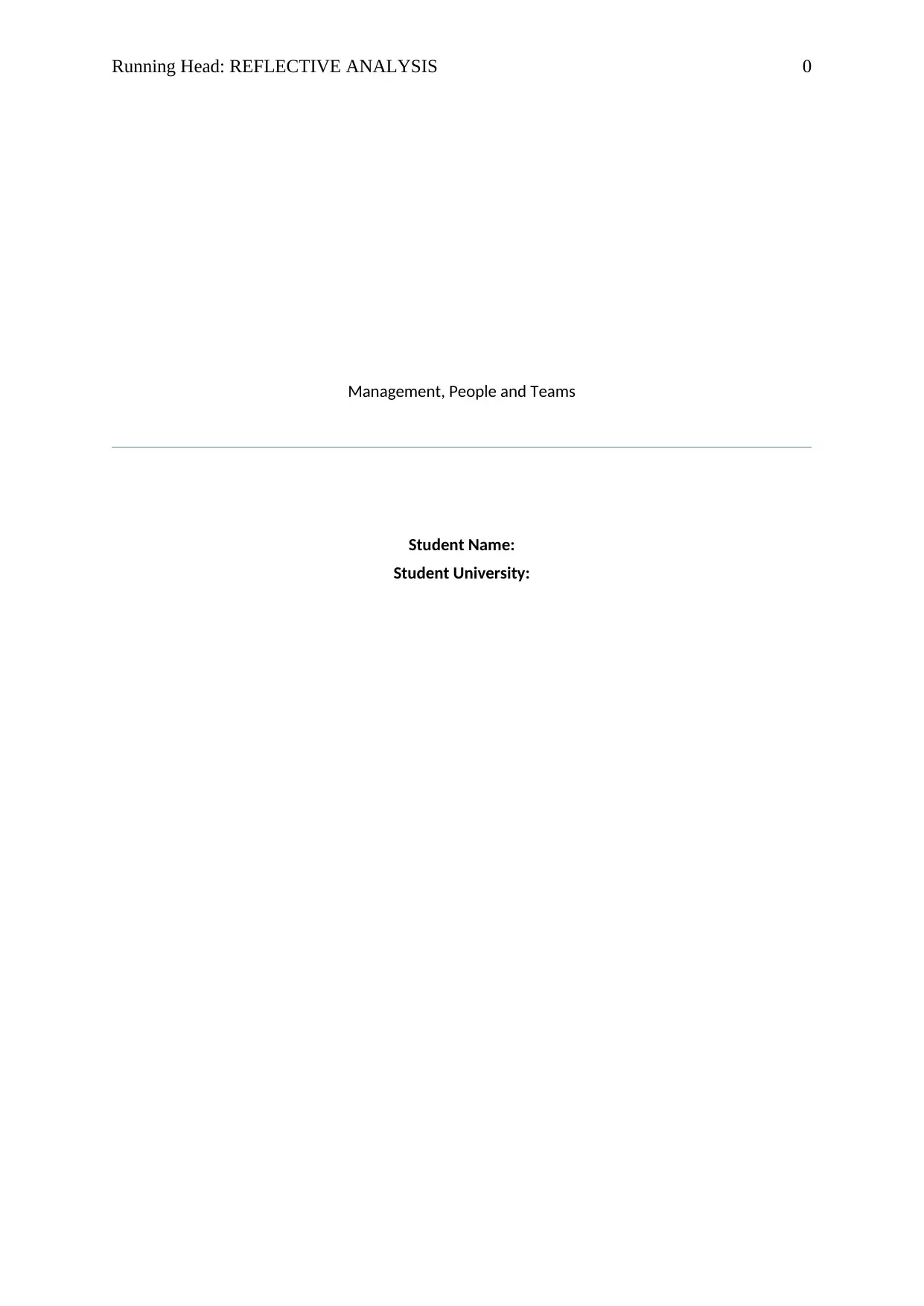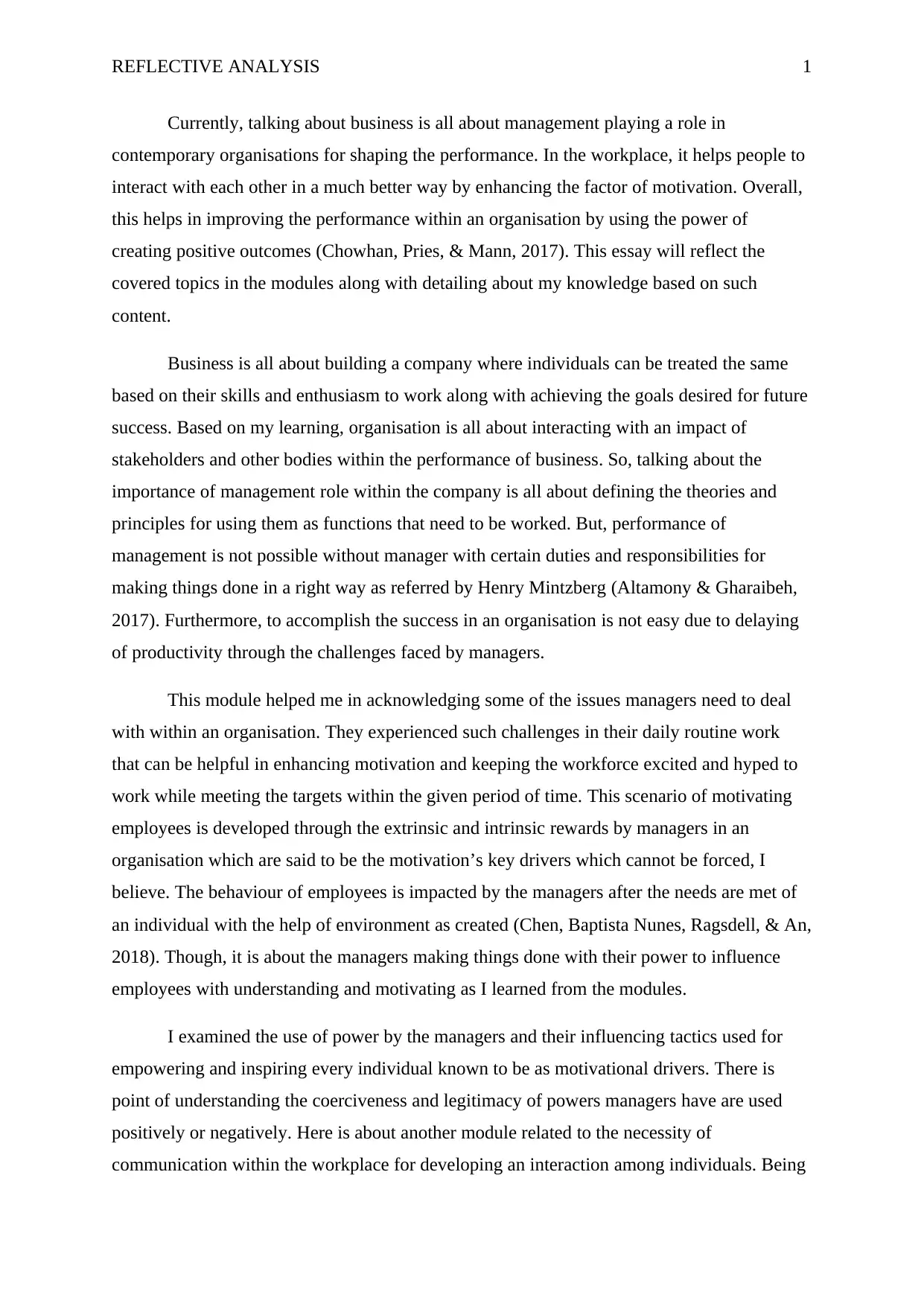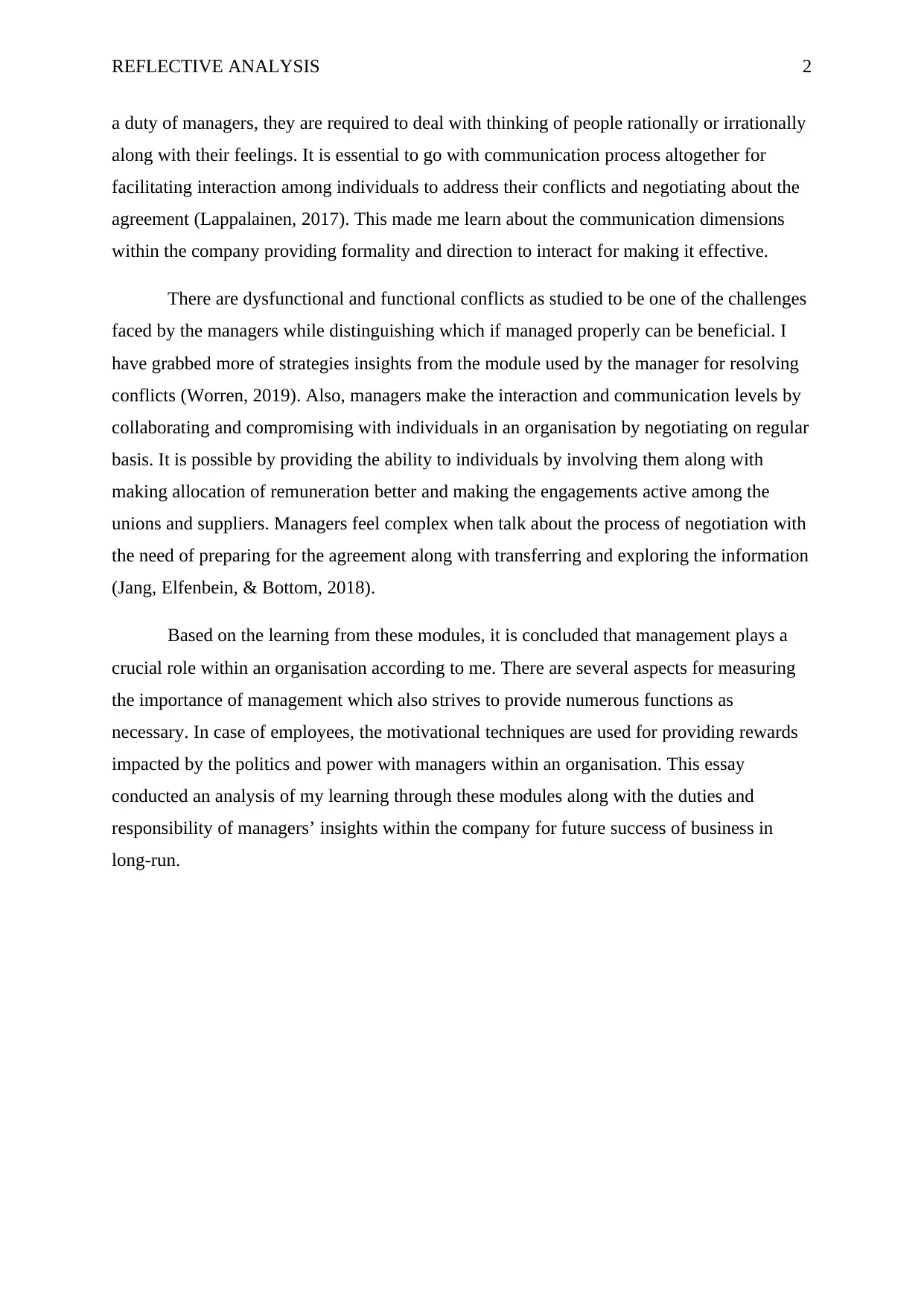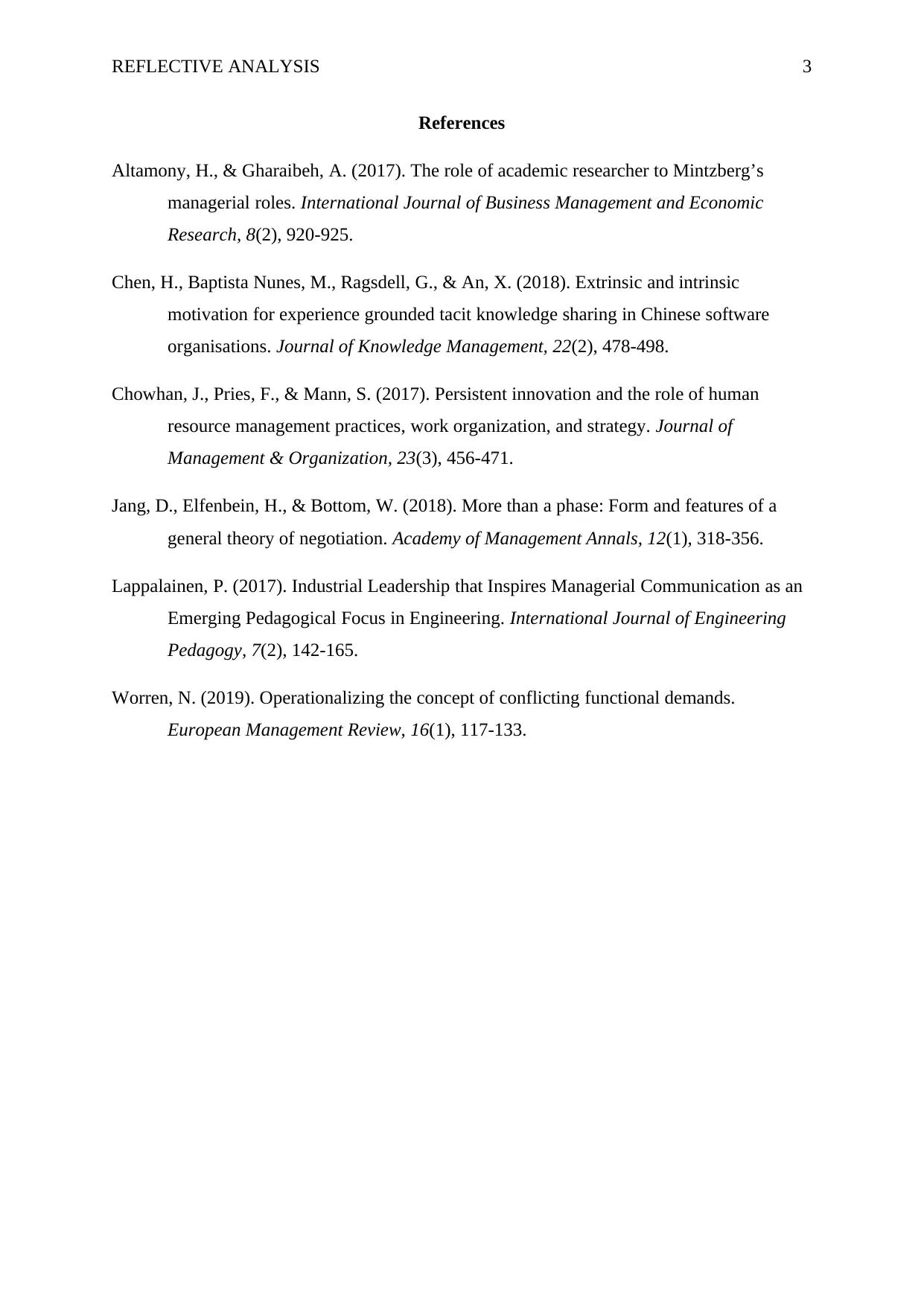MGT600 Reflective Analysis: Management, People, and Teams Report
VerifiedAdded on 2022/08/13
|4
|1043
|13
Report
AI Summary
This report presents a reflective analysis of the core concepts covered in the initial modules of a Management, People, and Teams course (MGT600). The analysis centers on the crucial role of management in shaping organizational performance, emphasizing the importance of effective communication, motivation, and conflict resolution. It explores how managers utilize various strategies to influence employee behavior, including the application of extrinsic and intrinsic rewards. The report highlights the significance of understanding managerial roles, as defined by Henry Mintzberg, and the impact of communication dynamics within the workplace. It also examines the challenges managers face when negotiating and resolving conflicts, emphasizing the need for effective communication and strategic insights to enhance individual and organizational success. The author reflects on the application of these concepts and their implications for future management practices, drawing on insights from the course modules and relevant academic references to support the analysis.
1 out of 4











![[object Object]](/_next/static/media/star-bottom.7253800d.svg)